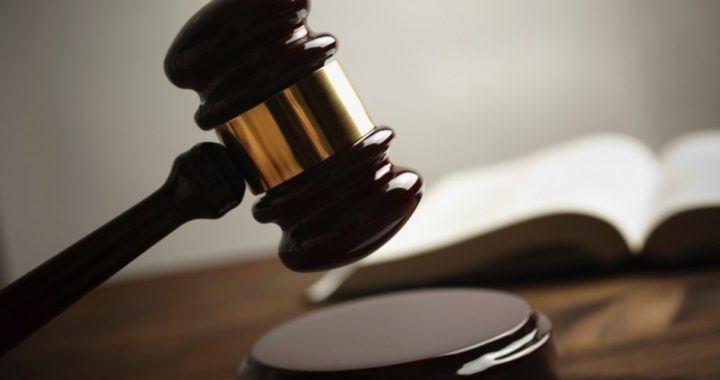
A proposed change to the official code of conduct for federal judges appears to specially target judges connected to the conservative-leaning Federalist Society, which describes itself as “a group of conservatives and libertarians interested in the current state of the legal order.”
A draft proposal forwarded by the Committee on Codes of Conduct of the U.S. Judicial Conference advises against federal judges being members of both the conservative Federalist Society and/or its supposed liberal counterpart, the American Constitution Society (ACS). The committee, composed of 15 judges who weigh in on ethics guidelines for the federal judiciary, advised that “official affiliation with either organization could convey to a reasonable person that the affiliated judge endorses the views and particular ideological perspectives advocated by the organization; call into question the affiliated judge’s impartiality on subjects as to which the organization has taken a position; and generally frustrate the public’s trust in the integrity and independence of the judiciary.”
However, writing in National Review, Carrie Severino of the Judicial Crisis Network argued that the two organizations should not be considered on equal footing in an ethics determination. “The Federalist Society does not take positions or advocate on particular issues, including legislation, nominations, and executive action,” explained Severino. “Neither does it stage rallies or similar efforts to advance any such positions, and it does not litigate before any state or federal tribunals. Its members span a wide range of views that tend to be right of center, but its programs are educational and typically include panels of experts from both the left and the right.”
By contrast, the liberal-leaning ACS “regularly takes positions on issues through a host of channels, including press releases, social media, and issue briefs,” wrote Severino. She recalled, for example, that when Brett Kavanaugh’s Supreme Court appointment was being considered, the ACS “created a vacancy tool kit encouraging people to take action in opposition to the nominee.”
Additionally, noted Severino, the ACS “released a letter signed by over 1,600 attorneys and law professors calling for the then acting attorney general, Matthew Whitaker, to recuse himself or be removed from overseeing the Mueller investigation, and urging Congress and future attorneys general to protect the Mueller probe.”
Such activist conduct on the part of the ACS serves to “distinguish it from the Federalist Society,” Severino emphasized.
Severino suggested that the proposal has the earmarks of attempts by liberal lawyers to stifle the influence of the Federalist Society. Placing it “in the same category as the ACS might appear judicious,” she wrote, “and given the left’s dominance of legal academia and bar associations, a blow to the ACS would be a small price for liberals to pay for a blow to the Federalist Society.”
In its own coverage of the judicial ethics proposal, BloombergLaw.com quoted an anonymous member of the Federalist Society as charging that the ACS “is in that draft opinion as a sacrificial lamb so that it’s not just the Federalist Society that looks like it’s being targeted.”
In the same proposal, the committee gave the left-leaning American Bar Association (ABA) a pass for judicial membership, insisting that its mission, “unlike that of the ACS or the Federalist Society, is concerned with the improvement of the law in general and advocacy for the legal profession as a whole.”
Decrying the committee’s apparent intention to use its proposal to railroad the Federalist Society as a politically conservative advocacy group, and, thus, off limits to federal judges, Severino wrote that “in fact, one could argue that this very Codes of Conduct Committee is far more political than the Federalist Society since it is now undertaking a nakedly political campaign to silence conservatives.” She added that “I think it’s fair to say that the Committee’s treatment of the ABA makes it clear it will apply arbitrary and incoherent exceptions for its favored (i.e., liberal) organizations.”
An anonymous “longtime Federalist Society member” was quoted by RealClearPolitics.com as saying that the proposed ethics rule change “was probably instigated and driven by people who are upset with the transformation that is taking place in the federal judiciary, and since they are on the left, they are accustomed to addressing problems by trying to censor the other side. And that’s exactly what this is — an act of censorship.”
As of February 1, President Trump has appointed 187 federal judges — second only to Jimmy Carter in the amount of judges appointed by the beginning of the fourth year of his presidency.



